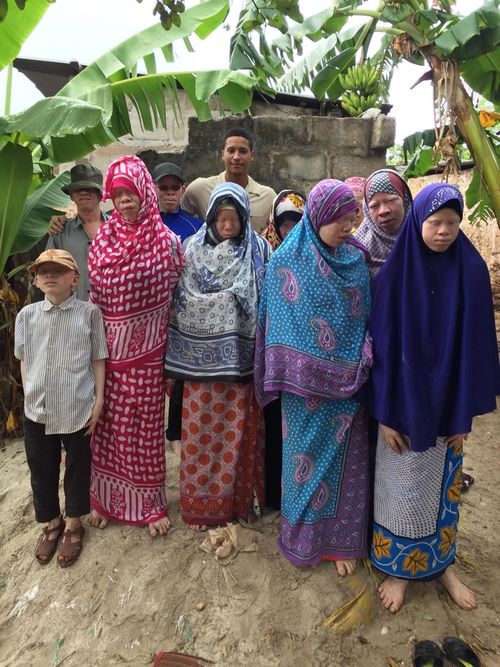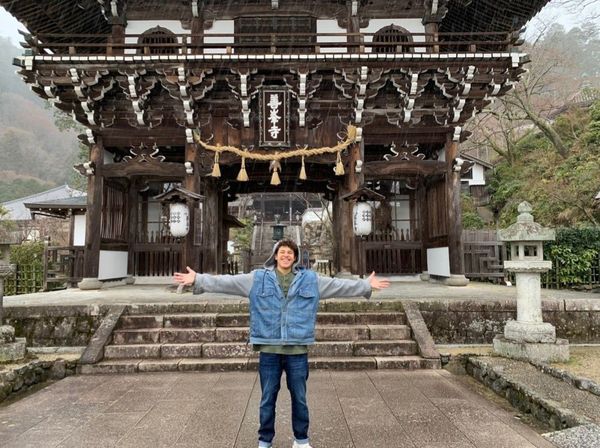
From analyzing Lego set instructions in the United States to unearthing Bronze Age cemeteries in Hungary, building climate chambers in Texas to studying Albinism in Tanzania, the Notre Dame Department of Anthropology provides research opportunities for undergraduates to study humans in all their complexity.
The four subfields of anthropology—linguistic, cultural, biological, and archaeological—are all represented in research and courses available to undergraduates at Notre Dame.
Senior Morgan Zepf, a biological sciences and anthropology double major on the pre-med track, says some of her favorite classes include Forensic Anthropology—which she describes as “the kind of thing you might see on Bones or Criminal Minds—and her Biological Anthropology class, taught by Dr. Rebecca Gibson.
Through the anthropology department and related grants from the National Science Foundation (NSF), Notre Dame students have traveled to conduct research in the American Southwest, the Field Museum in Chicago, Ireland, Japan, and more, as well as participating in lab work on campus.
“In a standard undergraduate experience, you get information, but you’re not seeing hands-on how that information is generated,” says Assistant Professor Mark Golitko. “Doing lab work or writing a senior thesis—this is how you generate new information and see what we teach in class. Even if you don’t go into research, you get insight into dealing with the complexity of the things that we study when we have a problem to solve.”
After her Biological Anthropology class, Zepf approached Dr. Cara Ocobock and asked if she could join her lab. The two have been studying gender bias in Lego sets marketed to young girls ever since. Their goal is to submit an abstract for a national periodical by April, which would make Zepf a published author on the paper.
Ocobock said that the anthropology program sees a lot of students who are on the pre-med track, including Zepf, although the major can fit with a great number of different interests and fields.
“Anthropology and biology really inform each other,” says Zepf. “Biology is more specific, while anthropology embraces the differences and ambiguities in human nature, which can be hard to put your finger on and are incredibly fascinating.”
Two other seniors in the anthropology major, Alyssa McGrath and Nyakeh Tuchscherer, have had completely different research experiences from Zepf's. This is not uncommon in anthropology, which at its most simplified, is the study of humans, a species that has provided a seemingly infinite amount of material to study.
McGrath, who has a second major in Italian, became interested in archaeology after taking Fundamentals of Archaeology with Golitko. She won an NSF Research Experiences for Undergraduates grant to join Golitko in the summer of 2018 in Hungary on a Bronze Age cemetery dig. The next summer, she received another grant to study remains from Bronze Age tombs at a University of South Alabama laboratory.
“I don’t think anywhere but Notre Dame would have given me the support that I got from my professors to reach for and apply for things that I didn’t ever think I had a chance to get into,” says McGrath, who is now working on a thesis on gender determination using teeth from Byzantine Jerusalem. “I had in-class experiences and amazing professors that made me so passionate about anthropology.”
Tuchscherer also started his studies interested in archaeology, but is now focused on social and cultural anthropology, or as he describes it, “living and breathing people, how they make sense of the world, how they respond to their environments, and how their languages give insights into their cultures.”
He became interested in the economic and social survival strategies of people with Albinism during a summer study abroad program in Zanzibar, and had received the prestigious Boren scholarship for research and study for an entire year in Tanzania, which was unfortunately canceled due to COVID-19-related restrictions. Tuchscherer, like McGrath, hopes to pursue a Ph.D. in anthropology and eventual professorship.
The anthropology department is currently working on a more streamlined process for undergraduates to pursue research they are interested in, Golitko says. However, students are always encouraged to approach professors and ask if there are any available opportunities.
“Given the culture at Notre Dame, if you’re an undergrad who wants to do research, don’t hesitate to email or reach out,” says Golitko. “There are a ton of opportunities out there.”

Explore Anthropology
- Learn more about the anthropology major and minor at Notre Dame.
- Meet Claire Stanecki '20, who conducted research via the Field Museum in Chicago with a grant from the Department of Anthropology.
- View the latest issue of Anthrocentric, the undergraduate journal of anthropology at Notre Dame.